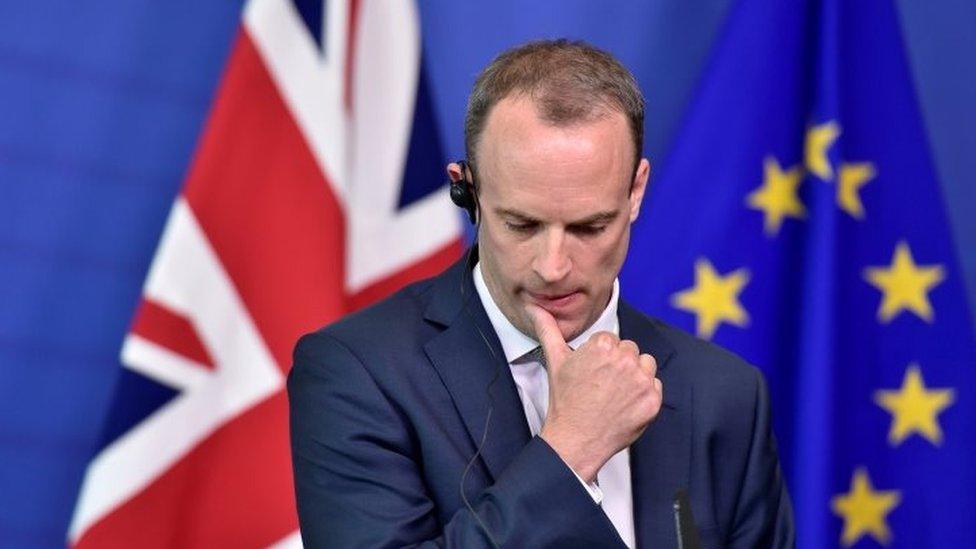Constitutional clashes at FMQs
- Published
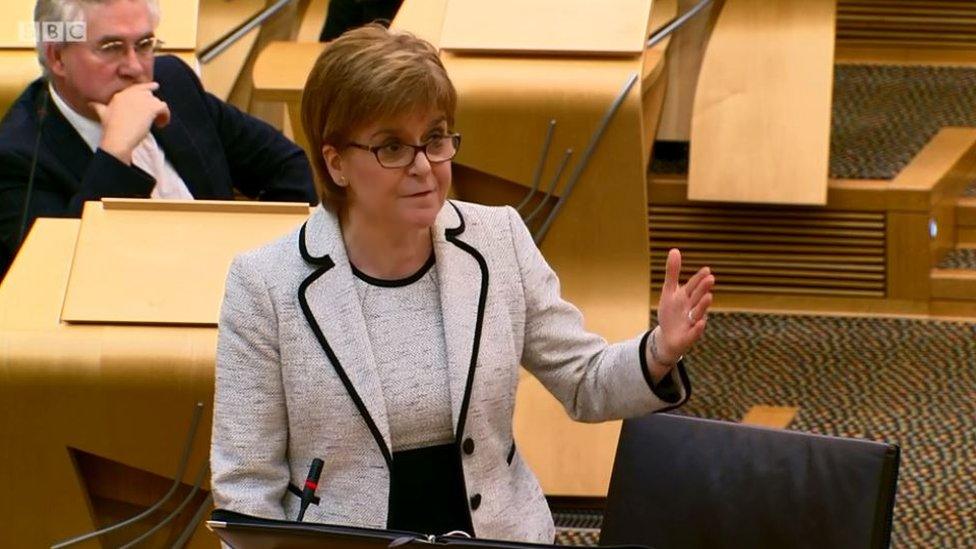
Nicola Sturgeon faced an afternoon of constitutional clashes
Jackson Carlaw stood up, slowly. As he did so, at Westminster, the prime minister was motoring towards the third hour of questions in the Commons, glancing behind her nervously to discern any further resignations from her team.
For Mr Carlaw, then, a challenge. Did he confront the chaos head on in his questions to the first minister? Or did he pursue her on another vital topic, such as ferret taming? (Widely and mistakenly neglected, in my view.)
The acting Scottish Conservative leader opted for courage. For, if you like, spitting in the wind. It was all, according to Mr Carlaw, Nicola Sturgeon's fault.
And how, pray? Well, apparently, her endless pursuit of independence had destabilised the Brexit project and, well, just ruined things generally.
The FM's response? "What a nerve!" Authenticity is rare in contemporary politics but Ms Sturgeon seemed genuinely exasperated at the line boldly adopted by her opponent.
She reminded him of: the party which introduced the Brexit referendum; the party which led the negotiations with the EU; the party which now appeared to be shedding ministers like snow off a dyke; the party which appeared to lack a strategy for solving the resultant quandary.
Getting into her stride, she suggested that both David Mundell, the Scottish secretary, and Ruth Davidson, Mr Carlaw's boss, should now resign in that they had warned against a differentiated deal for Northern Ireland.
Ms Davidson is on maternity leave. Mr Mundell is resolutely declining to step aside, accusing those who have quit of being late converts to the cause of Unionism. By contrast, one presumes, with his own steadfast stance.
David Mundell says he is staying as Scottish Secretary
I think he might have a little wriggle room here. The letter he and Ms Davidson sent to the PM (Theresa May, at the time of writing) voiced disquiet about differentiation.
But, in particular, it railed against a border in the Irish Sea, since supplanted by the UK customs union backstop.
And it warned against "Northern Ireland having a different relationship with the rest of the UK, beyond what currently exists" (my emphasis).
I suppose Mr Mundell might argue that the differential elements of the draft deal, as they apply to Northern Ireland, arise from pre-existing elements created by the Belfast / Good Friday agreement and the common desire to forestall a hard border on the island of Ireland.
However, the overall tone of the letter was to stress the integrity of the United Kingdom. Those who have departed today have argued that the draft deal threatens that very thing. Mr Mundell and, one presumes, Ms Davidson must simply dissent from that perspective, if they are to remain in office.
Keeping the seat warm
There is a further point, raised by the first minister. She argues that the draft agreement disadvantages Scotland, comparatively, because NI retains a degree of single market membership. The prime minister and Mr Mundell, we should record, disagree with that analysis.
On the topic of political durability, Jackson Carlaw teased the first minister somewhat. Neither he nor she, he averred, would be first minister after the next Scottish Parliamentary election.
But he knew a woman who would - and he was content to keep her seat warm. See above. On maternity leave? Name of Ruth? That's the one.
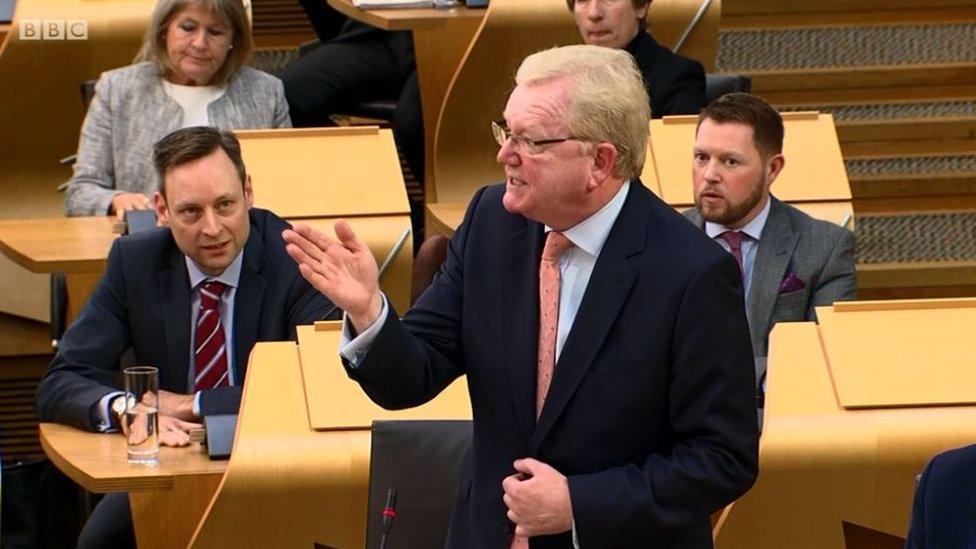
Jackson Carlaw opted to go on the offensive over the constitution
The first minister chortled, dismissively. In general, she was in combative form. Labour's Richard Leonard rose to inquire, sonorously, whether she wanted to banish the UK Tory government.
Ms Sturgeon replied, bluntly: "Yes."
Temporarily discomfited, Mr Leonard paused a mite in his rhetoric. But he rallied to demand a general election(Labour's current answer for pretty much everything).
The FM continued in dismissive style. Brexit, she said, would confront whichever party was in power - and nobody had a clue as to what Labour's stance was on that subject.
She invited Mr Leonard to resolve the dilemma. But the presiding officer moved on to backbench questions.
Indyref2 caution
Then a dual challenge for the FM. Patrick Harvie of the Greens demanded an urgent further referendum, this time on independence. He suggested this be accompanied by a new street campaign.
On that latter point, Ms Sturgeon's response was: go for it. But she was notably more cautious on the subject of indyref2.
She had promised an update on the topic - when there was clarity over Brexit. Such was not yet the case.
But when, Mr Harvie demanded, might there be clarity? Ms Sturgeon again counselled patience. We're definitely not there yet but one or two in her own ranks might become a little restless if this argument is pursued too far.
The bigger question, of course, is whether the FM is ready to press for indyref2. Not, I would suggest, at a notably early stage. Far too much uncertainty generally, far too much mid Brexit disquiet, perhaps, to contemplate another constitutional offer. Perhaps.
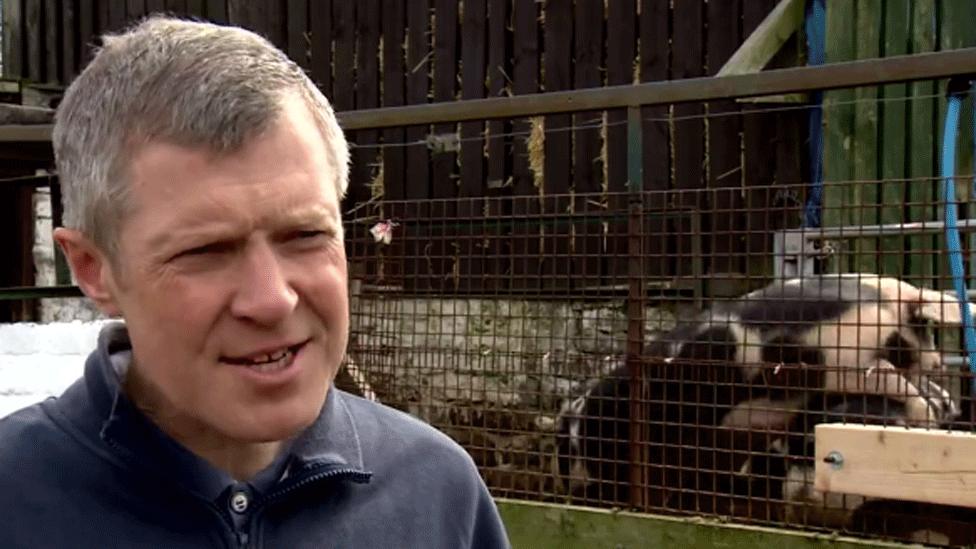
Willie Rennie has a history of pig-based interventions
Willie Rennie of the Liberal Democrats tried another tack. Would the FM back a further referendum - on Brexit? Would she support a "People's Vote"?
A little wearily - Mr Rennie has asked this more than once - Ms Sturgeon said that she would. But would Mr Rennie back distinctive treatment for Scotland if the Scots backed Remain once more?
Mr Rennie stepped back from that. What he wanted was Scotland in the UK and the UK in Europe. But he did agree with the widely expressed sentiment that the Conservative Party was in a less than advantageous position.
Scottish Tory MPs, he declared, were "as useless as a piano in a pig sty." Given Mr Rennie's past election experience with our noble, porcine chums, I suppose he counts as something of an expert.
What next?
Final thoughts on the future. There is a huge temptation for all involved to indulge in cross-party bickering or, even more deliciously, the internal version whereby one excoriates one's own side.
All will need to recall that Brexit does not go away simply because someone shouts loudly at the opposition, or their own side. Brexit has to be addressed and the calendar days are whistling by.
It strikes me these are the options. One, the PM somehow contrives to assemble a Commons majority for the existing deal.
Politics and arithmetic would say that is exceptionally unlikely. I have seldom seen a prime minister look so isolated. There was a dogged, laudable dignity about her. She was not simply clinging to power - but rather pursuing what she perceived to be her duty.
But she does not have the votes in the Commons. Not on the opposition benches. Not from her supposed partners in the DUP. Not from what one would call her own supporters, if the term had not become utterly otiose.
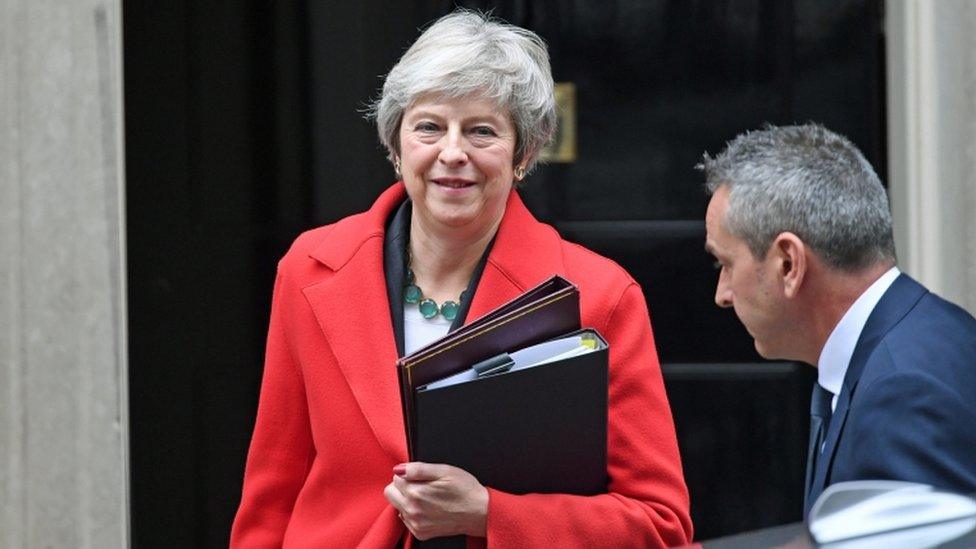
Will Theresa May hang on to her job?
So, what if she is replaced as PM, presumably by a Brexiteer? That individual would still face the challenge of negotiating a deal with the EU - bearing in mind that the Irish provisions which are so loathsome to many Tories were explicitly insisted upon by Brussels.
Presumably, there would then have to be an extension of the process. Unless the new PM concluded that no deal was preferable. But would there be a majority for such an approach - or would the Commons unite to demand an alternative?
Should there, then, be a general election? Again, presumably, extending the Brexit timetable? It is certainly a possibility. It is, in politics, always a possibility, if the provisions of the Fixed Term Parliaments Act can be obviated.
Again, though, that would take up time - and the incoming government of whatever colour would face the same dilemma which confronts the incumbents.
A second referendum, perhaps? It would appear to be gaining favour, to some extent, although it is resolutely opposed by the current government and by the Labour leadership. The terms would require to be defined which is not, presently, the case.
In any event, our politicians require to focus upon the real challenge, avoiding the temptation to pursue process, rather than substance.
- Published15 November 2018
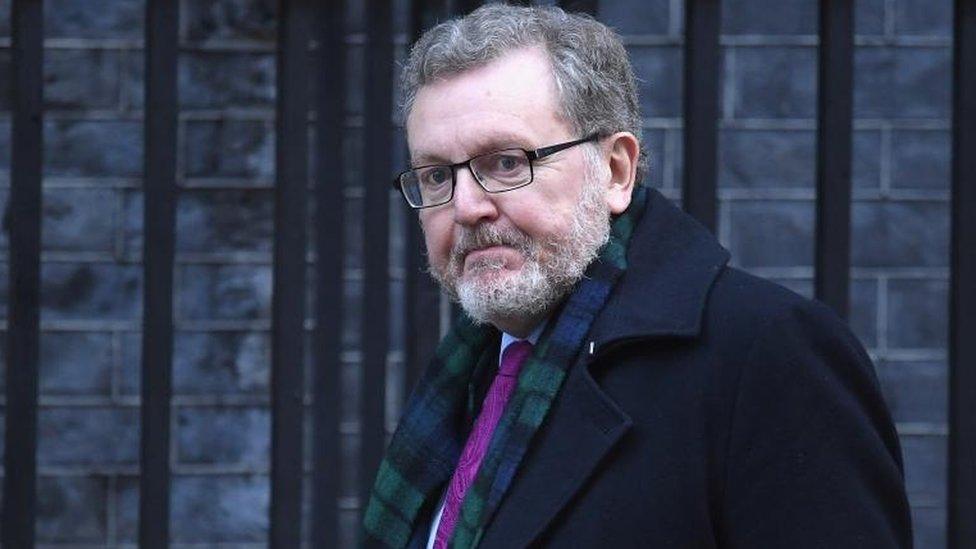
- Published15 November 2018
